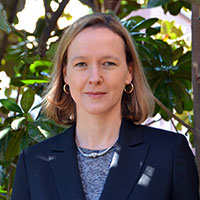Arsenic-Obesity-Diabetes Interactions
Diabetes, arsenic exposure, and obesity are highly prevalent in North Carolina and are all major health concerns. We know from studies in humans and in animal models that genetics plays a role in diabetes, obesity, and the efficiency of weight-loss interventions. However, we do not know which specific genes are involved and how they act in the context of environmental exposures such as inorganic arsenic. We are studying the interactions between exposure to arsenic, metabolism of arsenic in the body, and obesity, in relation to both genetic background and sex, as well as how those interactions affect the risk of type 2 diabetes. This new knowledge will allow us to identify those at higher risk and to begin to design appropriate therapies.

Genetics plays a role in diabetes, obesity, and the efficiency of weight loss interventions.
In Project 2, we take advantage of two unique resources available at UNC-Chapel Hill, the Collaborative Cross and a humanized mouse model of As3mt, the key enzyme in arsenic metabolism. The Collaborative Cross is a multi-parental inbred mouse population that serves as an important experimental tool for genetic researchers. By using these genetically diverse male and female mice with different capacities to metabolize inorganic arsenic, we can explore the effect of genetics in a rigorous and reproducible manner in an animal model while enhancing the translation potential to humans.
Researchers in Project 2 are also working to identify the molecular signatures of both arsenic associated diabetes and potential therapeutic interventions. A new understanding of the role of obesity, genetics, sex, and dose in disease, along with the vision of translating these findings to human populations, will enable us to develop new solutions to mitigate the effects of inorganic arsenic-induced type 2 diabetes.
Project Leader

Dr. Fernando Pardo-Manuel de Villena
Fernando Pardo-Manuel de Villena, PhD
Chair and Professor, Genetics; Oliver Smithies Investigator
UNC School of Medicine
Co-Investigators

Dr. Rebecca Fry
Rebecca Fry, PhD
The Carol Remmer Angle Distinguished Professor in Children’s Environmental Health, Department of Environmental Sciences and Engineering
Gillings School of Global Public Health
UNC-Chapel Hill

Dr. Miroslav Styblo
Mirek Styblo, PhD
Professor, Department of Nutrition
Gillings School of Global Public Health
UNC-Chapel Hill

Dr. Fei Zou
Fei Zou, PhD
Professor, Department of Biostatistics
Gillings School of Global Public Health
UNC-Chapel Hill
